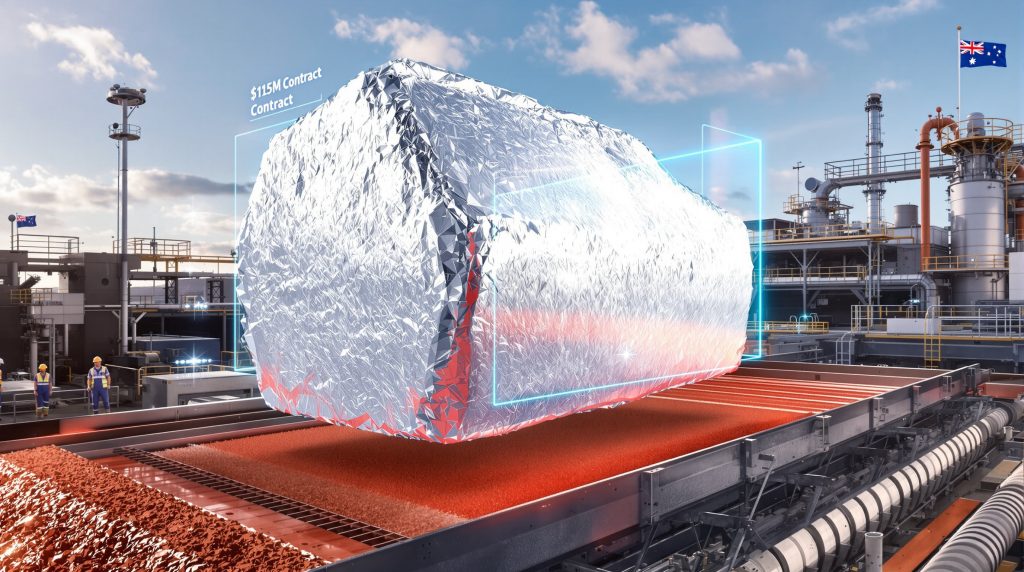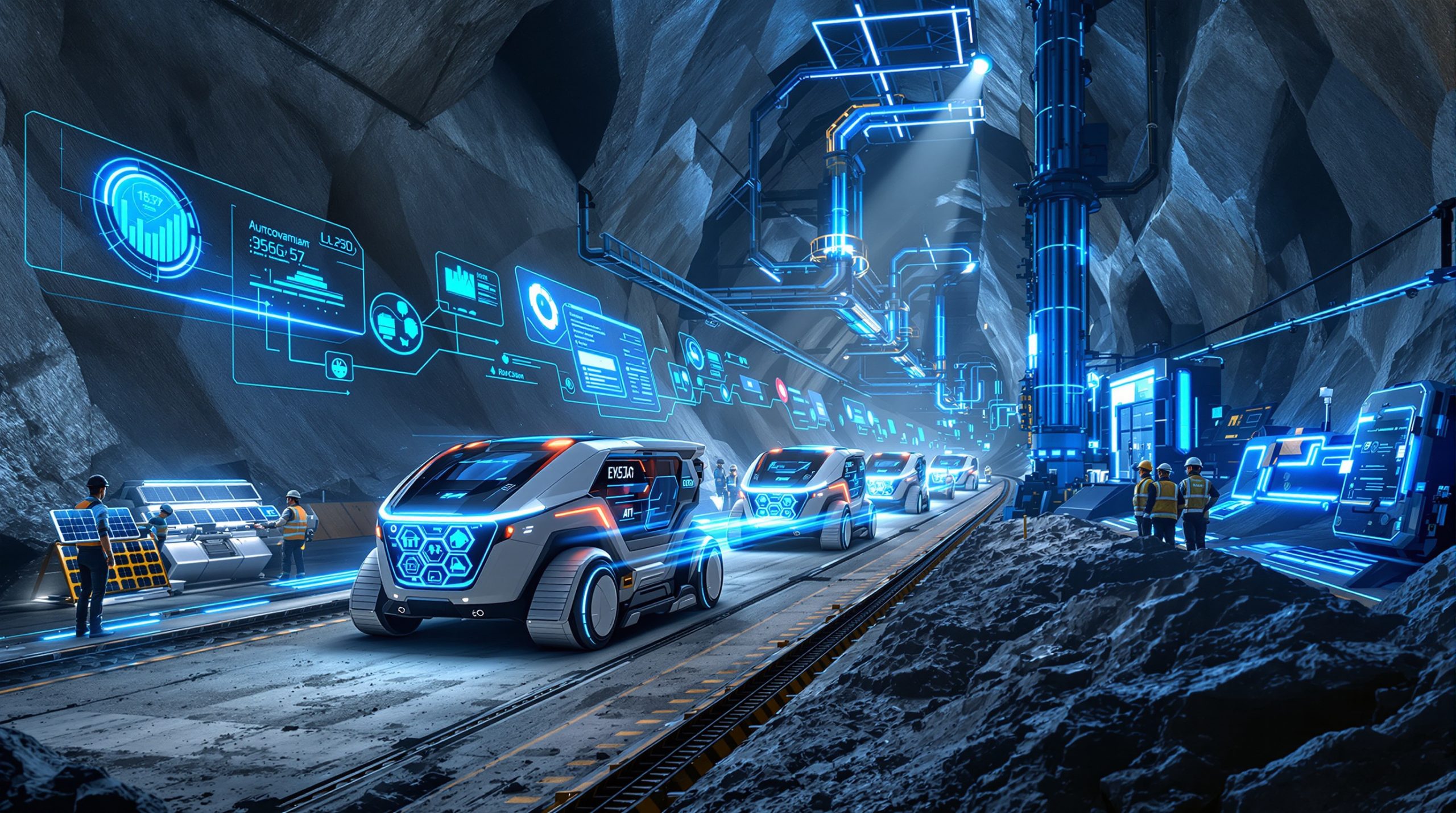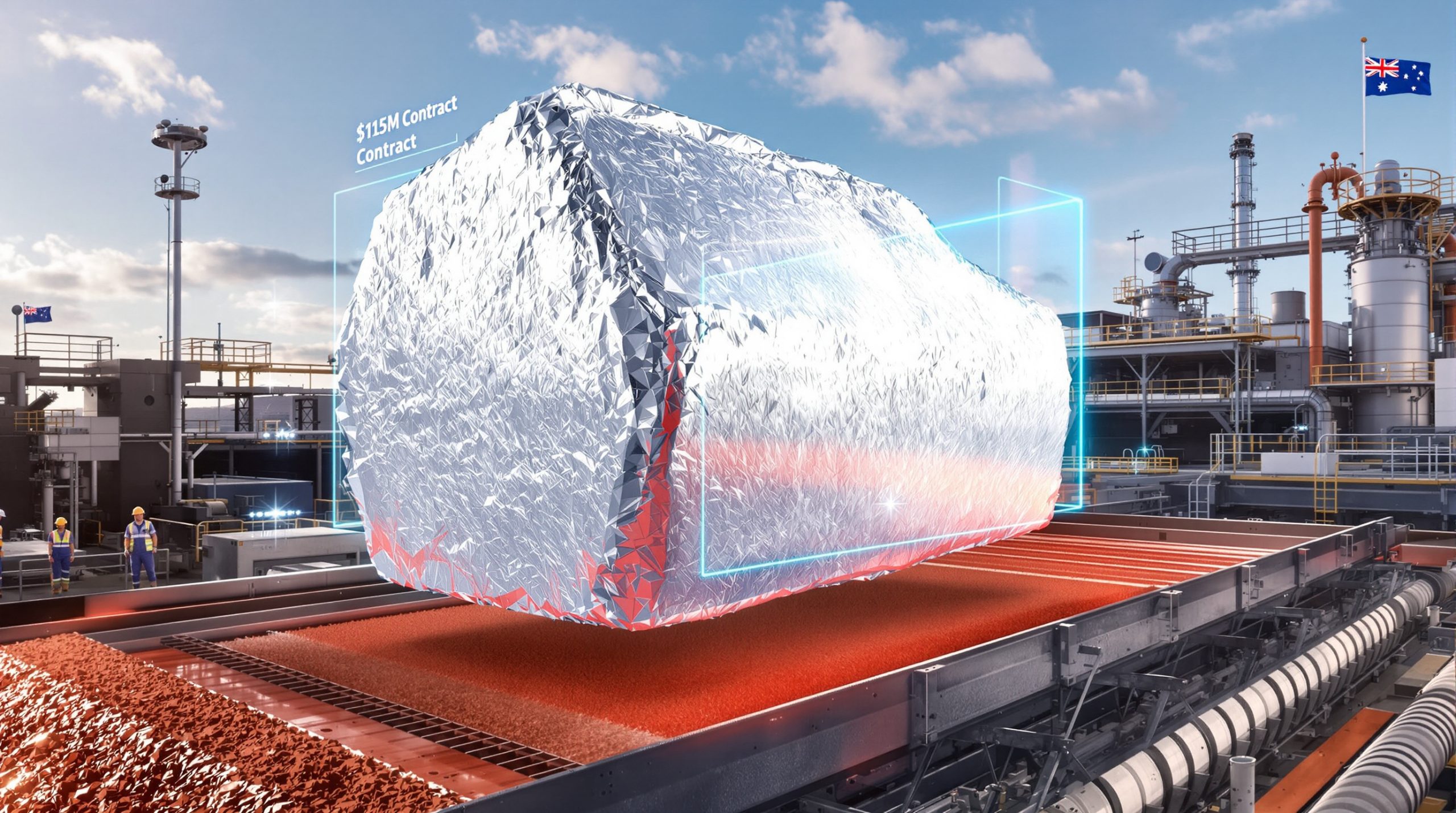SIMPEC's $115M Contract with Alcoa: Transforming Alumina Refinery Operations
The recent $115 million contract awarded to SIMPEC marks a significant milestone in Australia's mining services sector, positioning the company as a key player in enhancing operational capabilities at Alcoa's Pinjarra Alumina Refinery. This comprehensive industrial services agreement focuses on implementing advanced residue management technology that promises to improve environmental outcomes while boosting processing efficiency at one of Western Australia's most critical industrial facilities.
Key Contract Details and Timeline
The contract specifics reflect the substantial scale of this industrial undertaking:
- Contract value: Approximately $115 million
- Contract signing date: September 29, 2025
- Project commencement: Immediate mobilization
- Expected completion: First quarter of 2027
- Project focus: Residue Filtration Stage Two implementation
The immediacy of the project kickoff underscores the strategic importance of this upgrade to Alcoa's operations, with work already underway to transform the refinery's residue management capabilities.
How Will This Project Transform Alcoa's Refinery Operations?
The Residue Filtration Stage Two project represents a significant advancement in how alumina refineries manage bauxite residue, commonly known as "red mud" in the industry. This technological upgrade addresses one of the most challenging aspects of alumina production—efficiently managing the substantial volume of residue generated during the refining process.
The Technical Scope of the Residue Filtration Project
SIMPEC will serve as the primary contractor for this industrial upgrade, delivering an extensive range of engineering disciplines and construction services including:
- Structural engineering and steel fabrication implementation
- Mechanical systems installation and integration
- Comprehensive piping networks for fluid management
- Electrical systems and instrumentation controls
- Civil construction works for foundations and infrastructure
- Full commissioning services to ensure operational readiness
This multidisciplinary approach highlights the complex nature of modern industrial construction projects and the specialized expertise required for successful implementation.
Environmental and Operational Benefits
The filtration technology being implemented represents a significant advancement in bauxite residue management, offering several key advantages:
- Mechanical dewatering of bauxite residue via specialized filter presses
- Reduction of water content in residue from 65% to approximately 35%
- Minimization of storage area requirements compared to conventional wet disposal methods
- Enhanced processing capacity through removal of residue management bottlenecks
- Improved environmental footprint through more efficient waste handling
- Reduced risk of groundwater contamination from residue storage areas
By converting liquid residue into filter cake with significantly reduced water content, the technology creates a more stable material that's easier to manage over the long term, addressing both operational and environmental challenges.
What Does This Contract Mean for SIMPEC and WestStar Industrial?
The $115 million contract represents more than just a financial win for SIMPEC and its parent company WestStar Industrial—it establishes them as significant players in Australia's competitive industrial services landscape.
Strategic Growth and Market Position
This major contract award strengthens SIMPEC's position in several important ways:
- Reinforces the company's reputation for handling complex industrial projects
- Demonstrates client confidence in their multidisciplinary capabilities
- Establishes a stronger foothold in the aluminum refining sector
- Contributes substantially to WestStar Industrial's project portfolio and revenue stream
- Positions the company for similar environmental technology projects in the resources sector
The scale of the contract provides SIMPEC with a platform to showcase its engineering and construction expertise while building valuable experience in advanced residue management technology.
Management Perspectives on the Contract
Mark Dimasi, SIMPEC's Managing Director, highlighted the strategic significance of the contract, noting how it strengthens the company's reputation as a trusted partner for complex industrial projects while showcasing their ability to execute multidisciplinary works to the highest standard.
The leadership team has committed to delivering the project with a clear focus on:
- Safety as the primary consideration throughout all operations
- Operational efficiency to minimize disruption to existing refinery functions
- Quality outcomes that meet or exceed Alcoa's exacting standards
- Environmental compliance with Western Australia's stringent regulations
This project provides SIMPEC with an opportunity to demonstrate its capability in delivering capital works that enhance both operational efficiency and environmental performance.
How Does This Project Connect to Alcoa's Broader Operations?
The Residue Filtration Stage Two project forms part of a larger expansion of Alcoa's bauxite operations in the southwest of Western Australia, highlighting the strategic importance of the Pinjarra facility within the company's global production network.
Pinjarra Refinery's Strategic Importance
The Pinjarra Alumina Refinery represents a critical component in Alcoa's Western Australian operations, with several key attributes:
- One of the world's largest alumina refineries with substantial production capacity
- Integration with existing bauxite mining operations in southwestern WA
- A crucial link in Australia's aluminum supply chain
- Strategic location with access to export infrastructure
- Significant employer in the Peel region of Western Australia
This upgrade project reinforces Alcoa's commitment to maintaining Pinjarra as a world-class facility capable of competing in the global alumina market.
Technical Innovation in Alumina Production
The filtration technology being implemented represents a significant advancement in how refineries manage bauxite residue, as shown in the comparison below:
| Traditional Residue Management | New Filtration Approach |
|---|---|
| High water content in residue (65%+) | Mechanical removal of water via filter presses (down to ~35%) |
| Larger storage area requirements | Reduced footprint for residue storage (up to 30% less area) |
| Higher potential for environmental impact | Improved environmental performance through reduced seepage risk |
| Limited processing capacity due to residue bottlenecks | Enhanced throughput capabilities by streamlining residue handling |
| Greater water consumption for processing | Improved water recovery and reduced consumption |
This technological approach aligns with global trends toward more sustainability transformation trends in mineral processing operations, particularly for water-intensive processes like alumina refining.
What Are the Industry Implications of This Contract?
The substantial contract reflects several important trends in Australia's mining services and industrial sector that extend beyond this specific project.
Mining Services Sector Trends
This agreement highlights several key developments in Australia's resources industry:
- Growing investment in efficiency-enhancing technologies to maintain competitive advantages
- Increased focus on environmental performance in resource processing operations
- Strong demand for specialized industrial construction capabilities
- Continued capital investment in Western Australia's resources infrastructure
- Integration of sustainability transformation trends into core operational upgrades
These trends suggest continued opportunities for companies with the technical capabilities to deliver complex industrial projects that address both productivity and environmental considerations.
Future Outlook for Similar Projects
The implementation of advanced residue management systems at Pinjarra may signal similar upgrades across the aluminum industry:
- Potential for comparable technology adoption at other alumina refineries globally
- Opportunities for service providers with specialized capabilities in filtration technology
- Increasing emphasis on waste reduction and management in resource processing
- Growing market for mine reclamation innovations in mining and refining
- Possible regulatory pressure for improved residue management practices
As environmental standards continue to tighten globally, projects that improve waste management while enhancing operational efficiency are likely to become increasingly common throughout the resources sector.
FAQ: SIMPEC's Contract with Alcoa's Alumina Refinery
What exactly is bauxite residue and why is its management important?
Bauxite residue is the by-product generated when alumina is extracted from bauxite ore using the Bayer process. It contains iron oxides that give it a characteristic red color, leading to its common name "red mud." Its management is critical due to its volume (for each ton of alumina produced, approximately 1-1.5 tons of bauxite residue is generated), alkalinity (pH typically 10-13), and potential environmental impact if not properly handled. The filtration technology reduces these challenges by removing water content mechanically, creating a more stable material.
How does filter cake technology improve environmental outcomes?
The filter press technology transforms liquid residue into a semi-dry filter cake by applying mechanical pressure to remove water. This results in several environmental benefits: reduced storage area requirements, minimized potential for groundwater contamination, decreased dust generation, and improved stability of residue storage facilities. The recovered water can be recycled back into the refining process, further reducing the operation's environmental footprint.
What experience does SIMPEC have with similar projects?
SIMPEC has established itself as a specialist in industrial construction services across the Australian resources sector, with expertise in delivering multidisciplinary projects involving complex processing facilities and infrastructure. The company's track record includes projects in mineral processing, materials handling, and data-driven operations that have prepared it for the technical challenges of this residue filtration project.
How will this project affect Alcoa's production capacity?
While specific production increases haven't been publicly disclosed, the enhanced residue management capabilities will support greater processing throughput at the refinery by removing potential bottlenecks in the residue handling system. More efficient residue management allows the refinery to operate closer to its theoretical maximum capacity by eliminating constraints in the waste handling stream.
Additional Considerations for Aluminum Industry Stakeholders
Environmental Regulatory Context
The project takes place against a backdrop of evolving environmental regulations in Western Australia:
- Increasing scrutiny of residue storage facilities by environmental authorities
- Growing community expectations around industrial waste management
- Potential future limitations on traditional wet disposal methods
- Emphasis on reducing the long-term liability of residue storage areas
By proactively implementing advanced filtration technology, Alcoa positions itself favorably against potential regulatory changes while demonstrating environmental leadership in the alumina sector.
Economic Benefits Beyond Direct Employment
The project delivers several broader economic benefits:
- Upskilling of the local workforce in advanced industrial technologies
- Knowledge transfer to Australian engineering and construction professionals
- Support for local suppliers and service providers throughout the project lifecycle
- Enhancement of Western Australia's reputation as a center for mining technology excellence
- Demonstration of viable approaches for similar facilities globally
These broader benefits highlight the importance of such projects beyond their immediate operational improvements and contribute to the ongoing mining industry evolution.
Technology Transfer Implications
The implementation of advanced filtration technology at Pinjarra represents an important case study in technology transfer:
- Adaptation of filtration systems to the specific characteristics of Western Australian bauxite residue
- Integration with existing refinery infrastructure and systems
- Development of operational expertise in managing filter press technology
- Creation of performance data that can inform similar implementations elsewhere
- Potential for ongoing optimization and decarbonisation mining benefits in residue management approaches
Disclaimer: This article contains analysis of industrial developments and potential future trends. The information presented is based on publicly available data and industry knowledge. Readers should conduct their own due diligence before making business or investment decisions based on the content presented.
Looking for the Next Significant Mineral Discovery Investment?
Discover how major resource finds can transform your portfolio returns by exploring Discovery Alert's dedicated discoveries page, where their proprietary Discovery IQ model delivers real-time alerts on significant ASX mineral discoveries. Begin your 30-day free trial today at https://discoveryalert.com.au/discoveries/ to position yourself ahead of the market.




